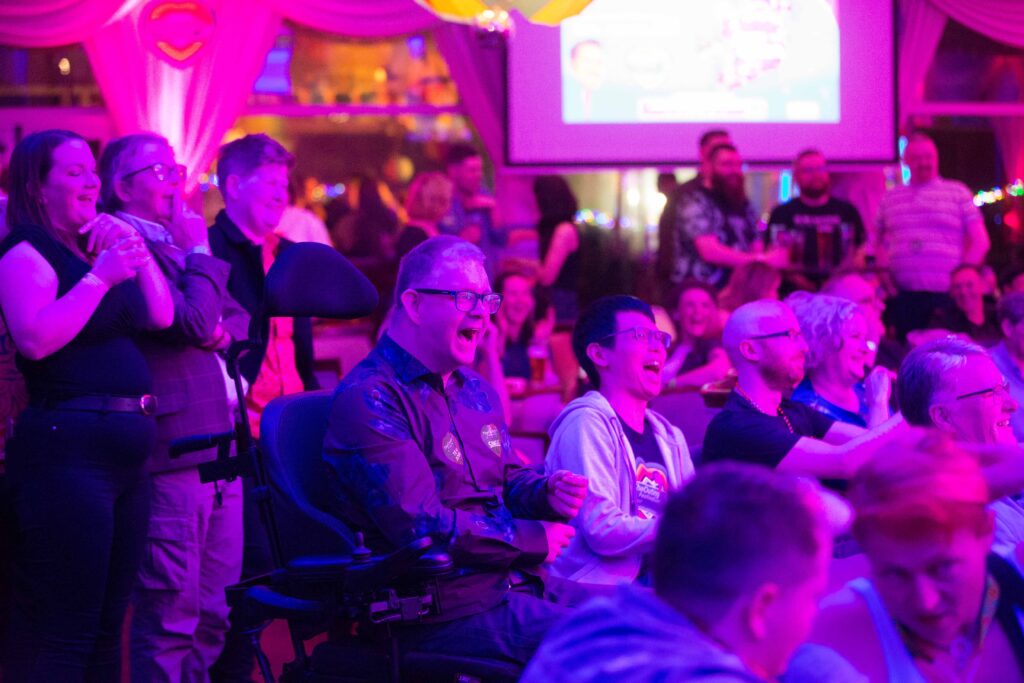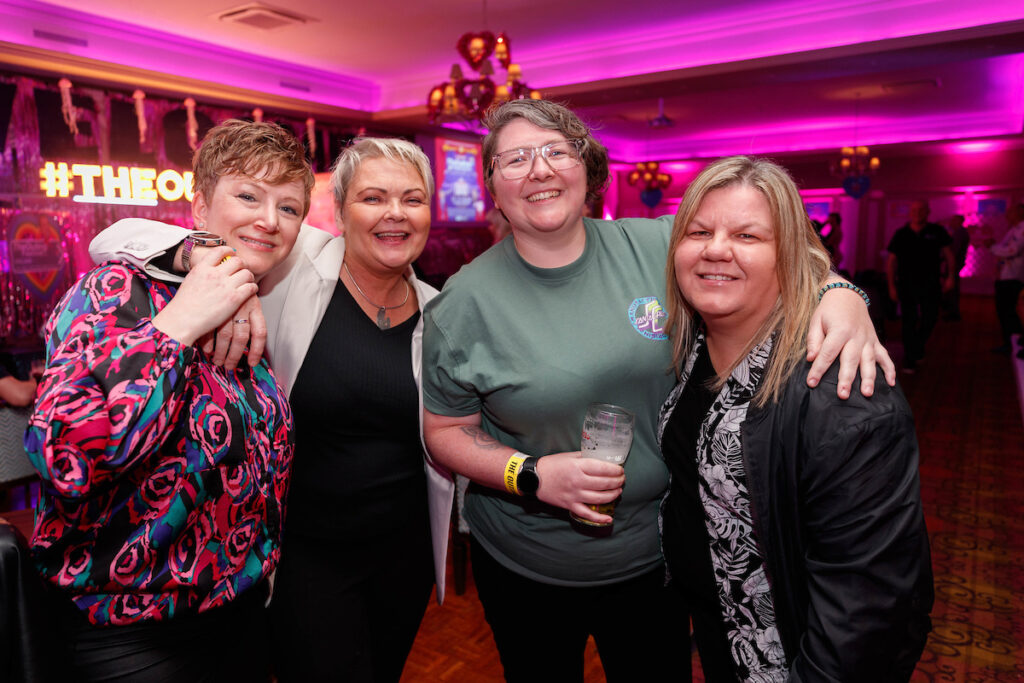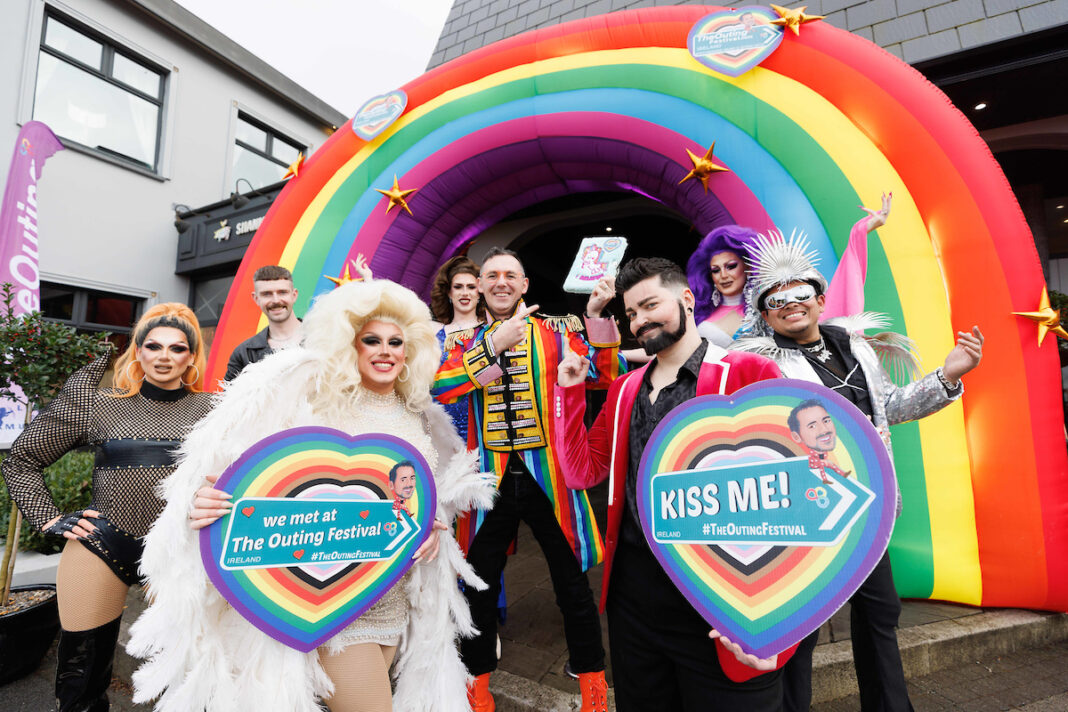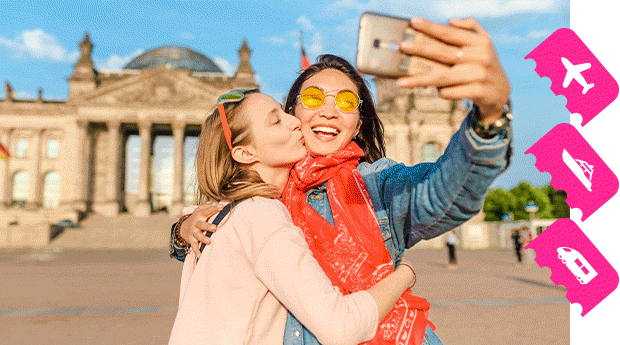The origins of The Outing, Ireland’s colourful queer arts and matchmaking festival, are rooted, bizarrely enough, in a traditionally straight matchmaking festival whose history goes back more than 170 years.
It all starts in the western town of Lisdoonvarna, population 829, which holds a famous matchmaking festival every fall that, over the decades, has attracted as many as 60,000 people from all over the world looking for love. Through most of its history, the Lisdoonvarna festival only considered straight matches; after all, homosexuality was illegal in Ireland until 1993.
But as Ireland moved into the 21st century and became a more accepting country, the festival heard feedback about being more inclusive. In 2012, Lisdoonvarna started hosting The Outing, a spinoff matchmaking festival where LGBTQ+ people wouldn’t be lost among the straight majority and could be more relaxed about being themselves. To be a bit racier, and see some drag.
In 2019, after seven years in Lisdoonvarna, The Outing moved to the town of Dromoland. Though it’s not much bigger than Lisdoonvarna, Dromoland has the advantage of being a smidge closer to Dublin (about a three-hour drive), much closer to Shannon International Airport (a 20-minute drive) and being the home of a beautiful 16th-century castle that’s been transformed into a luxury resort. The festival HQ is actually the more moderately priced 154-room Inn at Dromoland, which is part of the resort, so guests have access to the grounds. The owners let The Outing take over completely, putting camp decorations, including a giant inflatable rainbow, all over the property.

Eddie McGuinness, an artist, activist and events manager who helped turn Dublin Pride from a 20,000-person festival into a 100,000-person festival, had come up with the idea for something Outing-like in the early 2000s. That idea was in part, a queer riff on the beauty pageant The Rose of Tralee, which also takes place in western Ireland, though it took nearly a decade for The Outing, which is a not-for-profit organization, to become reality.
“Being an artist and a creator myself, I like bringing people together, both audience and performers,” says McGuinness, who has taken the title Queen of Matchmaking. “The key message is, it’s a safe space to be yourself. The first time we did it, in a village of about 900 people, over 2,000 queer people arrived. So we actually outnumbered the straights. The locals would call us ‘the polite drunks,’ because we were always nice and friendly. If we fall over, we always apologize on our way down and apologize on our way back up.”
The mix of people tends to be aged 30 and up, a balance of gay and bi men, lesbian and bi women, as well as nonbinary and trans people. Unlike other queer social spaces, organizers try to make sure it’s not male-dominated, which helps tone down the emphasis on sex. Because they have so many repeat guests, there are also non-single people, including couples and friend groups who met at The Outing. Two marriages have been reported since 2012 and several engagements. About 20 percent of guests are from outside Ireland.

“We’ve created relationships that lasted from one minute to several weeks to months to years. Whichever way you want to take that, you can. It’s fun,” says McGuiness.
What does an IRL matchmaking event look like in the era of smartphone dating and hookup apps? Do organizers lock everyone in a room and let out people only once they’ve paired up?
McGuinness says it’s much more organic than that. It could be the ice-breaking speed-dating event, the blind-date event or something as simple as the opportunity to sit with a new person at a meal. There are board games, workshops and opportunities to take part in outdoor activities. Those who attend are often tired of relying on their phones for meeting people, so they are usually eager to be present in the moment and strike up a conversation. If not, McGuinness says he has “Eddie’s Angels” who walk around the room, looking for people who are on their phones for more than a minute or two. In which case, “they go over and take the mickey out of them.”
Like so much of Irish culture, proceedings are easygoing and informal, almost always delivered with a chuckle and a twinkle. Once, when they were starting the blind-date event, a couple who got married after a previous Outing were supposed to take to the stage, but they had over-imbibed the night before and couldn’t leave their rooms. “We couldn’t stop laughing,” says McGuinness.
The performances also bring people together—it’s an arts fest as much as it is a matchmaking event. Though some of the brand-name performers might only be familiar to Irish people—in 2025, singer Shobsy, TV and radio personality Paul Ryder and Dublin drag king Phil T Gorgeous will take to the main stage—there are also DJs, a mini festival of short films and a crafts market. Last year, 1992 Eurovision Song Contest winner Linda Martin, who is 72, was the headliner and forgot the lyrics to her song halfway through. “Myself and my co-host, Paul Ryder, had to get up on stage and help her out with the words to the song. So did the audience.”
The next edition of The Outing takes place Valentine’s weekend, February 14 to 16, 2025, in Dromoland, Ireland.


